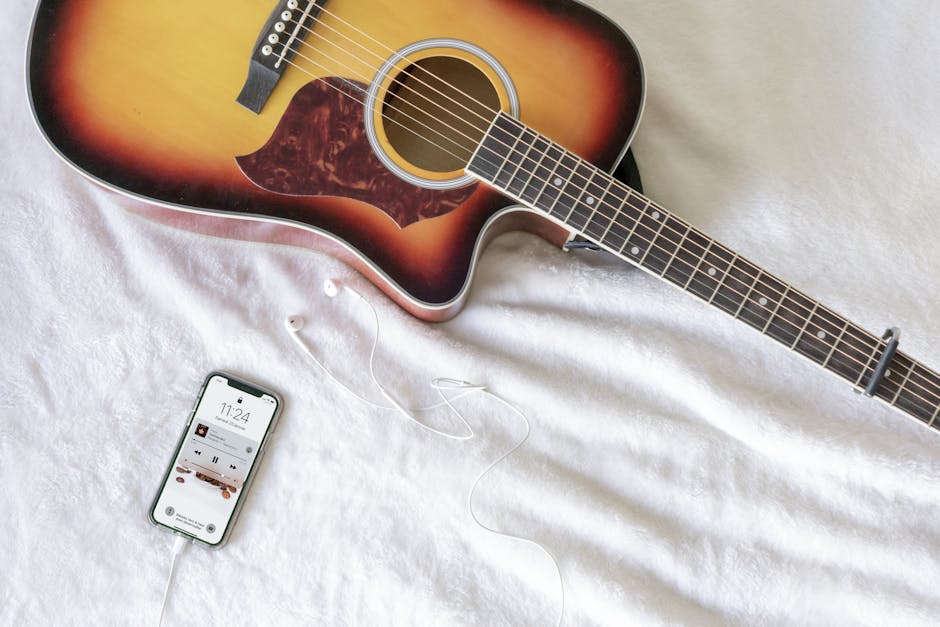Which Guitar Is Best For Beginners: Classical Or Acoustic?

Choosing Your First Guitar: Classical or Acoustic?
Choosing your first guitar is a pivotal moment in any budding musician's journey. The decision between Classical and Acoustic guitars can play a significant role in shaping your development and overall experience. Each type of guitar has its own unique characteristics and nuances with distinct advantages for rookies.
Classical and Acoustic guitars vary in size, sound, and playability. As the names suggest, the former is associated with classical melodies, offering a mellow tone, while the latter leans towards rock, country, and pop, delivering a rich and full-bodied sound. However, there's more to consider.
In this blog post, we'll dive into the specifics of both Classical and Acoustic guitars, and lend a guiding hand in helping you decide the perfect match for your beginning steps into the enchanting world of guitar playing.

Understanding the Basics of Classical and Acoustic Guitars
Understanding the basics of classical and acoustic guitars is pivotal in choosing the best instrument for beginners.
A classical guitar, usually crafted with nylon strings, delivers a warm and mellow tone. It's highly suitable for fingerstyle playing and classical music. The wider neck allows for a relaxed hand position, ideal for beginners.
On the other hand, an acoustic guitar, built with steel strings, produces a loud and bright sound. It's perfect for strumming chords, flat picking, and playing along to many popular music genres. The narrower neck might need an adjustment period but is quite manageable.
Knowing the differences between the two aids in aligning the guitar's features with the learner's musical preferences, aspirations, and comfort. While it could be argued that no guitar type is universally ‘best’ for all beginners, one can definitely be best for you.

Physical Differences between Classical and Acoustic Guitars
While both Classical and Acoustic guitars have a curvilinear structure, their physical differences significantly influence the sound they produce.
Classical guitars, often crafted from cedar or spruce, feature nylon strings. Their wider neck and flat fingerboard offer a more comfortable playing experience for beginners.
Acoustic guitars, traditionally of mahogany or rosewood, have steel strings that produce a brighter, louder sound. Their narrow neck and curved fretboard require slightly more intense finger pressure.
The size of the guitars also varies. Classical guitars are generally smaller, perfect for small hands. Acoustic guitars, however, have a larger body, resulting in a fuller tone.
Lastly, the shapes differ. Acoustic guitars come in various shapes such as dreadnought or cutaway, while classical guitars have a standard hourglass shape.
In summary, choosing between these two types of guitars will greatly depend on the learner's comfort and preferred musical style.
Assessing the Importance of Guitar Size for Beginners
If you're a beginner embarking on your guitar learning journey, the size of the guitar can play a crucial role.
Here are some tips to keep in mind regarding the size of the guitar:
- A right-sized guitar is fundamental for comfortable playing and accurate fretting. It is easier to handle, hold, and strum, making the learning experience more enjoyable.
- Classical guitars often have wider necks than acoustic guitars, which may not be ideal for small hands or shorter fingers.
- Steel string acoustic guitars, on the other hand, usually feature a slimmer neck design, arguably making them a slightly better choice for beginners.
Remember, whether it's classical or acoustic, the fit should feel natural. It should allow you to reach the frets without straining your hand or posture. Investing in the right-sized guitar is a critical first step to ensuring your success as a budding guitarist.

The Impact of String Type on Playing Experience for Beginners
Understanding the impact of string type on the beginner's playing experience is crucial. We've explored how the size of the guitar impacts a players experience but now let's consider the string types of these two guitars and how that affects their experience.
Classical Guitars String
The classical guitar strings are made of nylon, significantly softer than the steel strings of acoustic guitars. This difference in material can make the classical guitar less daunting for novices in the short term. The softer strings result in less finger pain, an issue for many beginners.
Steel String Acoustic
On the other hand, the steel strings of the acoustic guitars provide a brighter and louder tone, an appealing trait for many aspiring guitarists. However, the increased string tension requires greater finger strength, which can be challenging for newcomers.
Choosing between classical and acoustic ultimately depends on your personal music preference and pain tolerance. But remember, your fingers will, over time, develop callouses regardless of the guitar type, eliminating the initial pain. Consider which sound and genre appeals to you most before making a decision.

Assessing Cost: Is Classical or Acoustic Guitar More Affordable for Beginners?
When choosing a beginner's guitar, cost is often a critical factor. Looking at the classical and acoustic models, you might ask, which is more affordable?
Generally, classical guitars are less costly than acoustic guitars. This is mainly because the materials used in making classical guitars, including nylon strings, are cheaper. Acoustic guitars, on the other hand, are made with more expensive materials like steel strings, which leads to a higher price tag.
But it's important to remember the old adage—you get what you pay for. More costly guitars often offer better sound quality and durability, which might serve a beginner more effectively in the long run.
So, while classical guitars are typically more affordable upfront, both makes and models can be found at a slightly higher price tag that will allow players to grow with their guitar.
Always weigh your budget against the quality you're seeking when shopping for a beginner's instrument. However we suggest that if you don't know what you're looking for stick to a budget between $200-$500 to get a reliable guitar—but more about this in a moment!
Antonio Giuliani Guitars are a Great Choice for Beginners and Intermediate Players
Navigating the vast world of guitars as a beginner can sometimes feel overwhelming. Many professional guitarists suggest starting with a classical guitar with its nylon strings, which are kinder on beginners' fingers.
Antonio Giuliani offers well-made classical guitars suitable for beginning and intermediate players. The wider neck of their classical guitars also offers more room for error, which can be reassuring for those mastering chords.
Also, Antonio Giuliani's acoustic guitars are highlighted for their versatility. Their steel strings produce a brighter sound that's well-suited to a wider range of music genres, making them a popular choice.
Though the decision ultimately depends on your personal preferences and the genre you want to play, both Antonio Giuliani's classical and acoustic guitars are generally recommended by professionals for beginners. They each offer unique benefits that will help cultivate your technique, musicality, and love for the instrument.
















